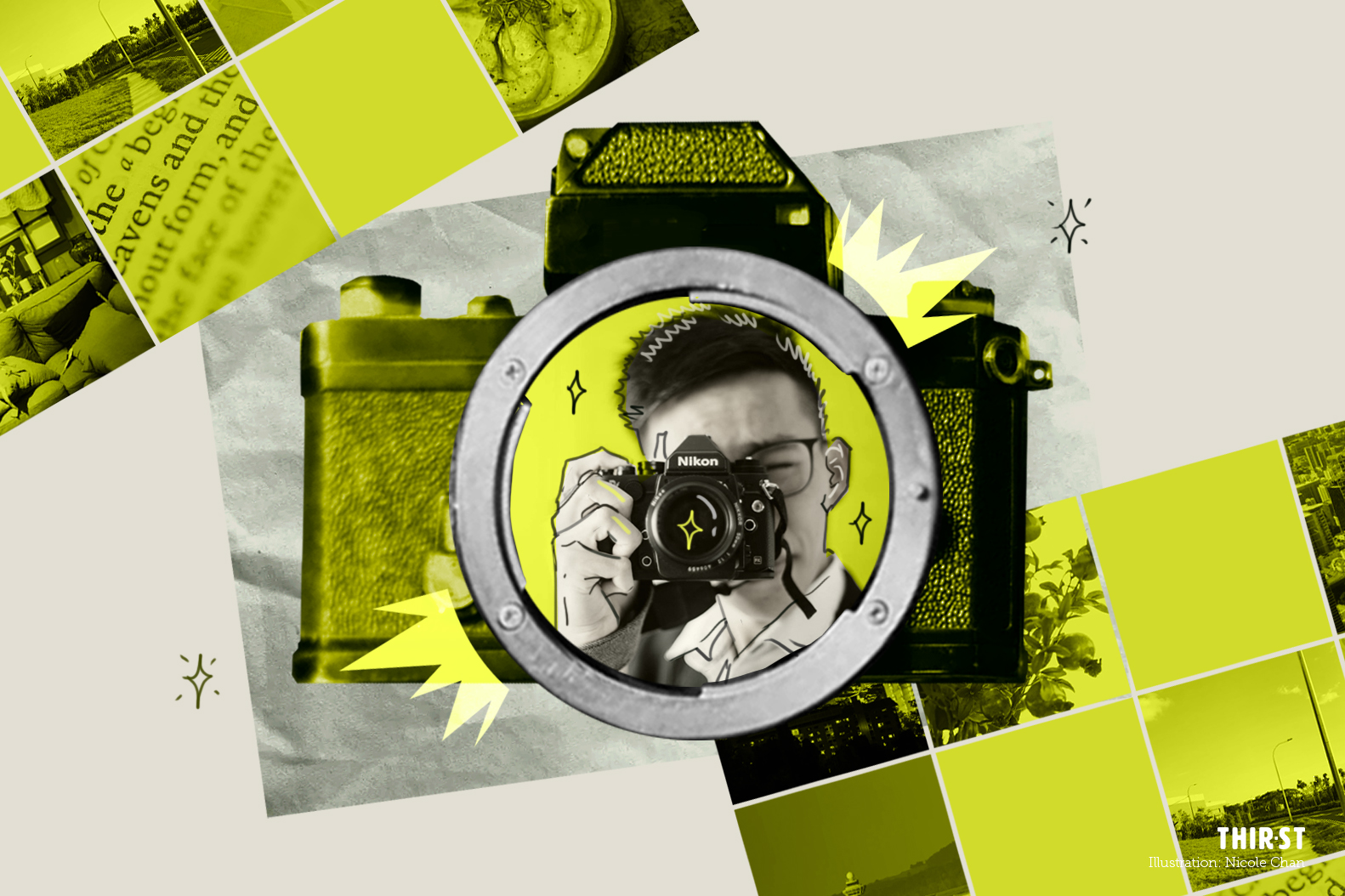Everyone has hobbies. But not all hobbies make you a globally recognised talent.
20-year-old Klaus Tan, better known as Chuttersnap within the photography community, is one such example.
Picking up his first camera at 10, Klaus became Singapore’s youngest wedding photographer at just 15 years old, with other works featured on The Washington Post, CNN and other well-known publications. All within less of a decade.
NOT A SHOT IN THE DARK
If you ask him what’s his formula for success, he sums it up with one word: Servanthood.
“In secondary school, I brought my camera to school every day, taking pictures of daily school life – which my friends were really pleased with because they could post these on Instagram,” he said.
This gave him opportunities to practice his photography skills. And while friends were posting his photos of them online, Klaus never demanded credit.
“When you take photos, is it for others or for yourself? I’ve always said that if I take photos of others in mind, then I should do it according to what benefits them the most.”
Instead, he prefers to thrive off goodwill and mutual respect. If they credit him, that’s great, if not, that’s also fine.

Of course, when you’re first starting out as a photographer, demanding credits and compensation is not a natural entitlement. After all, you’re trying to build opportunities and credibility.
The challenge comes when your services are good enough to be paid for. Would you still do things for free then?
Surprisingly, Klaus’ answer is yes. Despite now being a commercial photographer who earns off paid commissions, he has made a conscious decision to share a generous portion of his work for free, in line with his beliefs when he first began shooting.
“I could keep the photos and copyrights for myself and view them for eternity, but that’s not really the point of photographs.”
In 2016, he joined Unsplash, a free stock photo website. At that time, free stock photographs that were not “cheesy”, in his words, were rare. In fact, many photographers knew that traditional platforms like Getty and iStock would be places to thrive.
“It’s a pretty radical idea to be giving what’s normally a strong source of photography income away for free,” Klaus agreed. “But my accounts there (Getty and iStock) were performing so miserably.”
“So I realised I could keep the photos and copyrights for myself and view them for eternity. But that’s not really the point of photographs. By releasing them, they could be put to better use to articulate visually what words alone cannot.”
With that, Klaus uploaded the same batch of 30 cityscape photos on Unsplash, which eventually garnered more than 10 million views.
“If I had a dollar for each view the photos have had, $13 million would be mine,” he joked.

His photos have now travelled far and wide. He would sometimes see his own photos being used on sponsored posts targeted at him. He’s even seen them on popular Bible app YouVersion‘s “Verse Images” section, where verses overlaid on beautiful nature images are curated for readers.
“It’s so great because they are doing God’s work, you know? I’m happy to be able to help.”
Continuing, he explained: “I know it’s counterintuitive to give away whatever that sustains you. But the Bible teaches us to hold our material possessions with a loose hand.
“Money and fame fade away in the long term but blessing flows the moment you release it – then you can be filled up with even more.”
“Money and fame fade away in the long term but blessing flows the moment you release it”
He then shared an example of a time he received a message from a lady who wanted to use one of his cityscape photos for her website.
But when he suggested that she could consider supporting his work with a small token sum, she changed her mind about using the photo as she had not expected to pay anything for it.
Flustered, Klaus started thinking about what his reply should be.
“I thought about it and came to the conclusion that it wouldn’t profit me to keep this photo for myself. So I told her that I’ll give it to her for free.”
Surprised and thankful for his generosity, the lady replied with this verse: “Do you see a man skillful in his work? He will stand before kings; he will not stand before obscure men (Proverbs 22:29, ESV).”
To Klaus, this was a beautiful exchange. Proverbs 22:29 has been his brand’s theme verse ever since.

SHOOTING FOR SUCCESS
Using photography as a form of service unto others has been Klaus’ philosophy, but what about the practical side of things? How did he develop a passion into a talent? He gives us four tips:
1. Find your interest and develop it
“My parents did try to make me a pianist when I was younger. And although I eventually went through my ABRSM Grade 8 examinations, I can only play Twinkle Twinkle Little Stars now,” Klaus said with amusement.
Long story short, they sold the piano and it’s been 6 years since he last touched it.
From this experience, Klaus gathered that his musical education didn’t work out because it was solely an external factor that was forcing him to learn the piano. It was never going to last once parental supervision was taken away.
On the other hand, he was passionate about photography. “When you are genuinely interested in that subject matter, it’s going to be natural to want to better yourself and work towards a proficiency point,” he said.
2. Dare to take risks
In 2017, Klaus randomly wrote an email to Nikon Singapore asking if he could borrow their flagship camera set-up to cover a sports event.
“I just thought maybe someone in this world would entertain this idea,” he said, noting that he was still a nobody in the photography scene back then.
That leap of faith landed him the opportunity of shooting a national school swimming championship with $13,000 equipment set up.
3. Don’t harp on disappointments and failures
Of course, taking risks may not always pay off. Every rejection Klaus faced when asking for collaborations used to feel like a failure to him.
But he also noted that the only way that disappointments will affect us severely is when we refuse to get back up again after facing a setback.
To deal with discouragement, Klaus usually tunes in to worship music: “It’s the best because you don’t have to do anything with your mind. You just play it in the background and let the work be done in your spirit. Allow God to take over and fill you up.
“That’s the kind of rest I believe we should have. Not striving or trying to fix this or that but giving God room to fix you in His own way and His own time.”

As the interview drew to an end, Klaus reminded me that life is not just about how we develop our talents but what we use our talents for.
“While photography started out as a hobby for me, it became a gift that I can use to bless others. And now, I see it as a tool for me to shine forth and channel my fame towards furthering God’s work,” he said.
“When people see my talents, I hope they see God too.”
- What are your gifts and talents?
- How did you develop them over the years?
- How have you used these gifts to bless others?
- Why do you think God made you gifted in this way?









